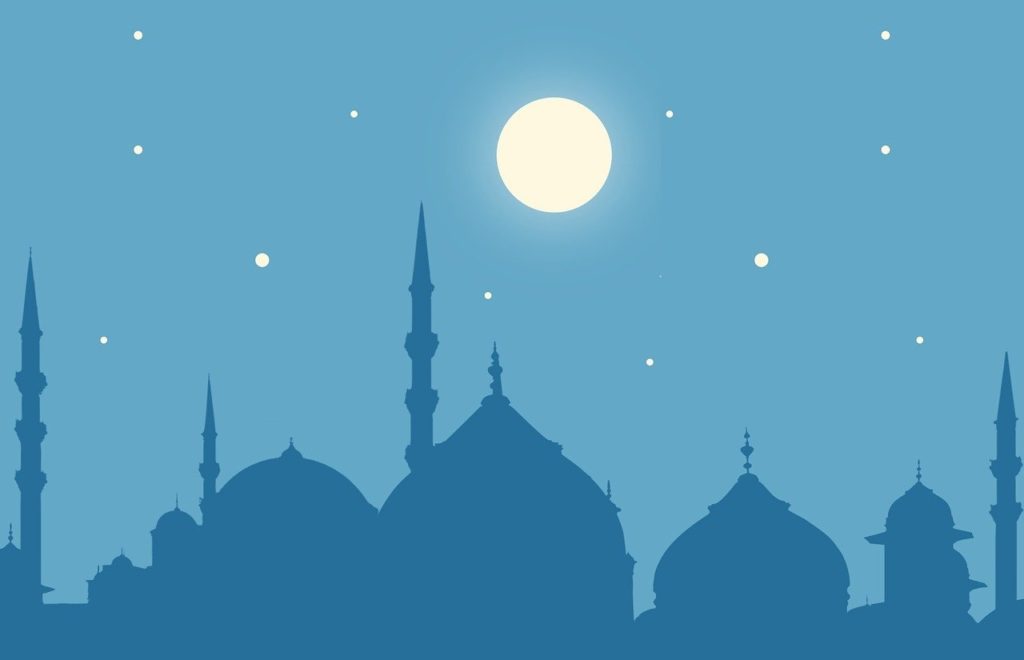Azhar Goraya, Missionary, Mexico

In a few days, something strange is going to happen to hundreds of millions of people on earth. Every one of these people, from housewives to office workers, is going to leave aside food and water from dawn till dusk.
No, it’s not a protest or another trendy diet. These hundreds of millions of people are Muslims and in a few days, with the start of the holy month of Ramadan, they will begin a long journey of fasting and spiritual rejuvenation.
That’s not to say that the fast is for a whole 30 days. Not many Muslims would survive that. A fast is kept each day, from dawn to dusk. Muslims observing the fasting season are permitted to eat and drink outside of daylight hours.
The month of Ramadan is the ninth month in the Islamic calendar. From the time of the Prophet Muhammad, peace and blessings of Allah be upon him, over 1,400 years ago, Muslims have religiously observed fasting during this sacred time every year.
The month of Ramadan was the month when divine revelation first began to descend upon the Prophet Muhammadsa. The angel Gabriel would communicate to him verses of the Holy Quran, the holy scripture of Islam, which is considered the word of God. Thereafter, for the duration of his 23-year prophethood, the angel would revise the revelation of the Quran with him every Ramadan. Therefore, Muslims try to devote more time to the study of their holy scripture in this month.
Like all other aspects of Islam, the method of fasting was implemented and demonstrated by the Holy Prophet Muhammadsa. During the fast, a Muslim must abstain from all food, drink and conjugal relations. But the fast doesn’t only demand controlling one’s apetites.
The Prophetsa stated that Allah is in no need of one who fasts and does not leave false speech and hurtful comments. In the same fashion, he stated that if someone wishes to argue with a person who is observing the fast, he should merely reply, “I am fasting”.
The Prophet Muhammadsa, already extremely generous, would become even more giving during this month. Ramadan thus encompasses both physical and internal discipline.
The Promised Messiah, Hazrat Mirza Ghulam Ahmadas stated about the fasts:
“Fasting is not simply about being remaining hungry and thirsty, but its reality and impact can only be obtained through experience.
“It is human nature that the less one eats, the more one purifies the spirit and thus increases the capacity for [spiritual] visions. God’s will is to decrease one kind of sustenance and increase the other. A person who is fasting should always keep in mind that he is not only required to be hungry, rather he should be occupied with the remembrance of God so that he can cut the ties of worldly desires and diversions and be totally dedicated to God. Therefore, the meaning of fasting is that man renounces one kind of sustenance that feeds only the body and attains the other kind of sustenance that is a source of comfort and gratification for the soul. And those who observe fasting only for the sake of Allah and not only by custom, should remain engaged in the praise, glorification, and exaltation of Allah the Almighty, through which they can receive the other food.” (Malfuzat, Vol. 5, p. 102)
According to one hadith, the month of Ramadan is one where the the gates of hell are locked and the gates of heaven are thrown open. The days of the month are divided into three blocks – the first ten days are a time for mercy, the second set of ten for receiving forgiveness and the last ten days are for liberation from the hellfire. The final ten days are days of special effort – the Prophet Muhammadsa would “gird his loin” and dedicate a major portion of the night to worship. Many Muslims choose to retire to the mosques for these days to and try to follow his example.
After the month is over, there is a day of celebration, known as Eid-ul-Fitr. On this day, Muslims do not fast, rather they eat in thankfulness to Allah. They dress up in their best clothes and proceed to the mosques, where there is a prayer in congregation and a sermon. Communal greetings, alms-giving and spending time with family and friends characterise the Eid-ul-Fitr celabrations for many Muslims around the world.
Islam is a complete code of life. Fasting is an essential part of that code and carries with it numerous benefits. It is a time that Muslims anxiously wait for all year round and from experience, their happiness is best enjoyed when shared. So from me to you, I wish you a blesssed Ramadan. Ramadan Mubarak!

